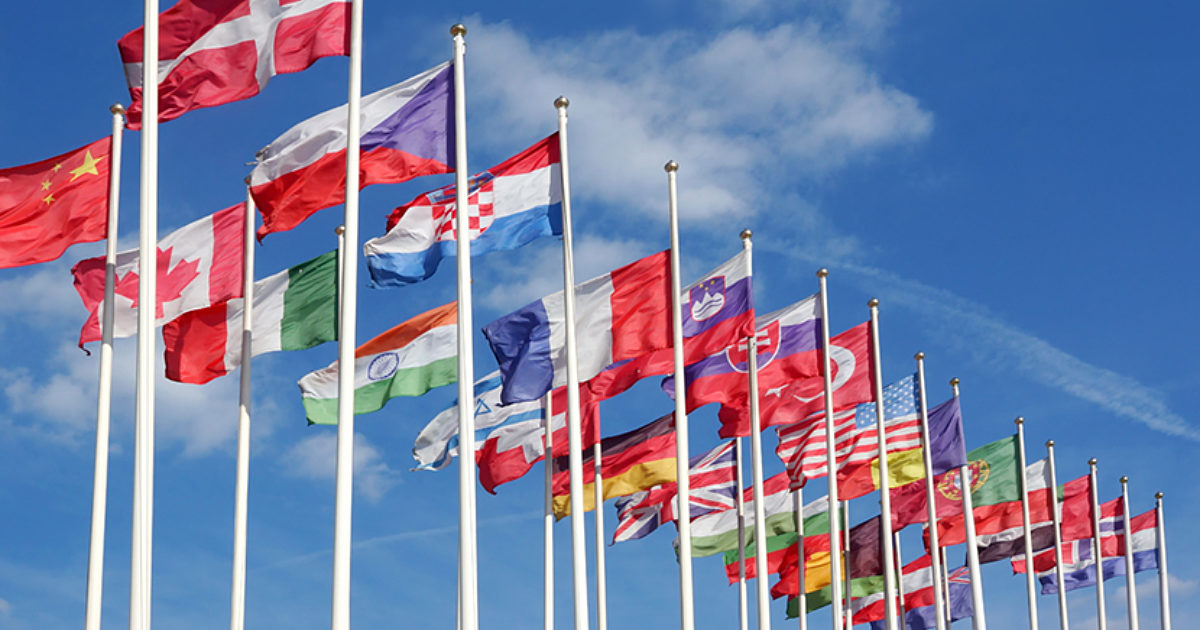"How Technology Influences the Multipolar World Order"
The 21st century has brought about a significant geopolitical transformation marked by the rise of a multipolar world order. Unlike the previous dominance of a single superpower or a bipolar system, this new landscape features multiple nations wielding considerable influence on the global stage. Central to this transformation is innovation—a powerful catalyst shaping political, economic, and social dynamics across borders. From artificial intelligence (AI) to cybersecurity and space exploration, technology plays an instrumental role in redefining power structures and relationships in this emerging multipolar world.
Innovation as a Power Multiplier
In a multipolar world, innovation serves as a critical force multiplier, enabling nations to extend their influence and assert strength in various domains. Advanced technological capabilities enhance military, economic, and political tools, creating new forms of competition and collaboration.
Military Innovation
Nations are heavily investing in cutting-edge military technologies, such as AI-driven weapons systems, hypersonic missiles, and autonomous drones. These advancements redefine conventional warfare, offering unprecedented precision and efficiency. For instance, the United States, China, and Russia lead in developing hypersonic weapons capable of traveling at speeds exceeding Mach 5, bypassing traditional defense systems. These technologies not only bolster national security but also shift power balances, enabling smaller nations with advanced tools to challenge established powers.
Economic Innovation
Economic strength is closely tied to technological progress. Countries with robust tech ecosystems, such as Silicon Valley in the U.S. or Shenzhen in China, dominate global economic competition. Technology drives productivity, streamlines trade, and creates new markets, giving technologically advanced nations a significant edge. For example, China’s digital yuan demonstrates how technology can disrupt traditional financial systems and reshape economic power dynamics.
Cyber Capabilities
In the digital era, cybersecurity has become a cornerstone of national security and geopolitical strategy. Cyberattacks, espionage, and information warfare are tools increasingly used to influence political outcomes and weaken adversaries. Nations like Russia, the U.S., and China are known for their sophisticated cyber operations. The ability to safeguard critical infrastructure and counter cyber threats is now a key determinant of national resilience and global standing.
Innovation as a Leveler
While innovation amplifies the power of dominant nations, it also serves as a leveler, enabling emerging powers and smaller states to compete on the global stage.
Access to Innovation
The democratization of technology has made advanced tools accessible to a broader range of nations. Open-source software, affordable manufacturing technologies, and cloud computing have lowered barriers to technological development. Countries like India and Brazil, for instance, have emerged as significant players in software development and renewable energy.
Digital Diplomacy
Technology facilitates new forms of diplomacy and international engagement. Smaller nations can leverage social media and digital platforms to amplify their voices on global issues such as climate change, human rights, and trade equity. Estonia, often called a "digital nation," has used its advanced e-governance systems to build a reputation as a leader in digital transformation and cybersecurity.
Innovation Hubs and Startups
The rise of global innovation hubs and startups enables smaller nations to cultivate ecosystems that attract foreign investment and talent. Israel, for example, has become a hub for cybersecurity innovation, earning the nickname "Startup Nation." Such achievements enhance these countries' global influence and strengthen their position in the multipolar order.
Innovation and Regional Power Centers
In the multipolar world, regional power centers are increasingly defined by their technological capabilities. These players influence their neighbors and global governance structures.
China's Technological Ascendancy
China’s rise as a technological superpower is a defining feature of the multipolar world. Strategic initiatives like "Made in China 2025" aim to achieve dominance in high-tech industries such as robotics, biotechnology, and AI. Additionally, China's Belt and Road Initiative (BRI) includes a "Digital Silk Road" component, exporting telecommunications infrastructure to developing nations and fostering technological ecosystems.
India's Role in Technology
India has emerged as a key player in the global tech landscape, excelling in software services, digital payments, and space technology. Initiatives like the Indian Space Research Organisation’s (ISRO) low-cost satellite launches and the Digital India campaign highlight the country’s commitment to leveraging technology for economic and geopolitical gains.
European Technological Sovereignty
European nations strive to achieve "technological sovereignty" to reduce dependence on external powers like the U.S. and China. The European Union’s investments in digital infrastructure, AI research, and data privacy frameworks reflect its ambition to be a major technological power while upholding democratic values.
Global Collaboration and Competition in Technology
The multipolar world fosters both collaboration and competition in the technological sphere. Nations recognize the need for cooperation on global challenges while competing for technological supremacy.
Collaboration on Global Challenges
Technology plays a vital role in addressing global challenges like climate change, pandemics, and cybersecurity threats. Initiatives like the Paris Agreement emphasize the importance of innovation in achieving sustainability goals. Similarly, global partnerships in vaccine development and distribution during the COVID-19 pandemic highlight the potential of collaborative technology-driven solutions.
Competition for Technological Leadership
The race for technological leadership often manifests as competition among major powers. For instance, the U.S. and China are locked in a contest for AI supremacy, with both nations investing heavily in research, talent development, and infrastructure. This rivalry extends to other sectors such as 5G networks and quantum computing, shaping global alliances and trade agreements.
Ethical and Regulatory Challenges
The rapid pace of technological advancement in a multipolar world raises ethical and regulatory concerns. Balancing innovation with social responsibility requires global consensus and robust governance frameworks.
Data Privacy and Security
As technology becomes more integrated into daily life, concerns about data privacy and security grow. The European Union’s General Data Protection Regulation (GDPR) serves as a model for regulating data usage, but differences in global standards create challenges for international cooperation.
Ethical AI Development
AI technologies hold tremendous potential but also present risks of bias, surveillance, and misuse. Establishing ethical guidelines for AI development and deployment is essential to ensuring that technological progress aligns with human rights and global stability.
Addressing Digital Inequality
The digital divide remains a significant barrier to equitable technological development. Bridging this gap requires investments in infrastructure, education, and digital literacy, particularly in developing regions. Global efforts to promote inclusivity can prevent technological advancements from exacerbating inequalities.
The Future of Technology in a Multipolar World
As technology continues to evolve, its impact on the multipolar world order will only grow. Emerging technologies such as quantum computing, biotechnology, and space exploration are set to reshape power dynamics in unforeseen ways.
Quantum Computing
Quantum computing promises to revolutionize fields ranging from cryptography to materials science. Nations leading in quantum research will gain a competitive edge, potentially reshaping economic and security landscapes.
Space as the New Frontier
Space exploration is becoming a focal point of geopolitical competition and collaboration. Countries like the U.S., China, and India are expanding their space programs, with ambitions ranging from lunar exploration to satellite deployments. Space technologies have significant implications for global communications, defense, and resource extraction.
Biotechnology and Global Health
Advances in biotechnology, such as gene editing and personalized medicine, will play a crucial role in addressing health challenges and enhancing agricultural productivity. These innovations will influence global health strategies and food security, reinforcing the interconnectedness of nations.
Conclusion
Technology is both a driver and a reflection of the multipolar world order. It shapes how nations assert power, collaborate, and compete on the global stage. While advanced technologies offer unprecedented opportunities for innovation and progress, they also present complex challenges that require careful navigation. By fostering ethical practices and promoting global cooperation, nations can harness the transformative potential of technology to build a more balanced and equitable world.



